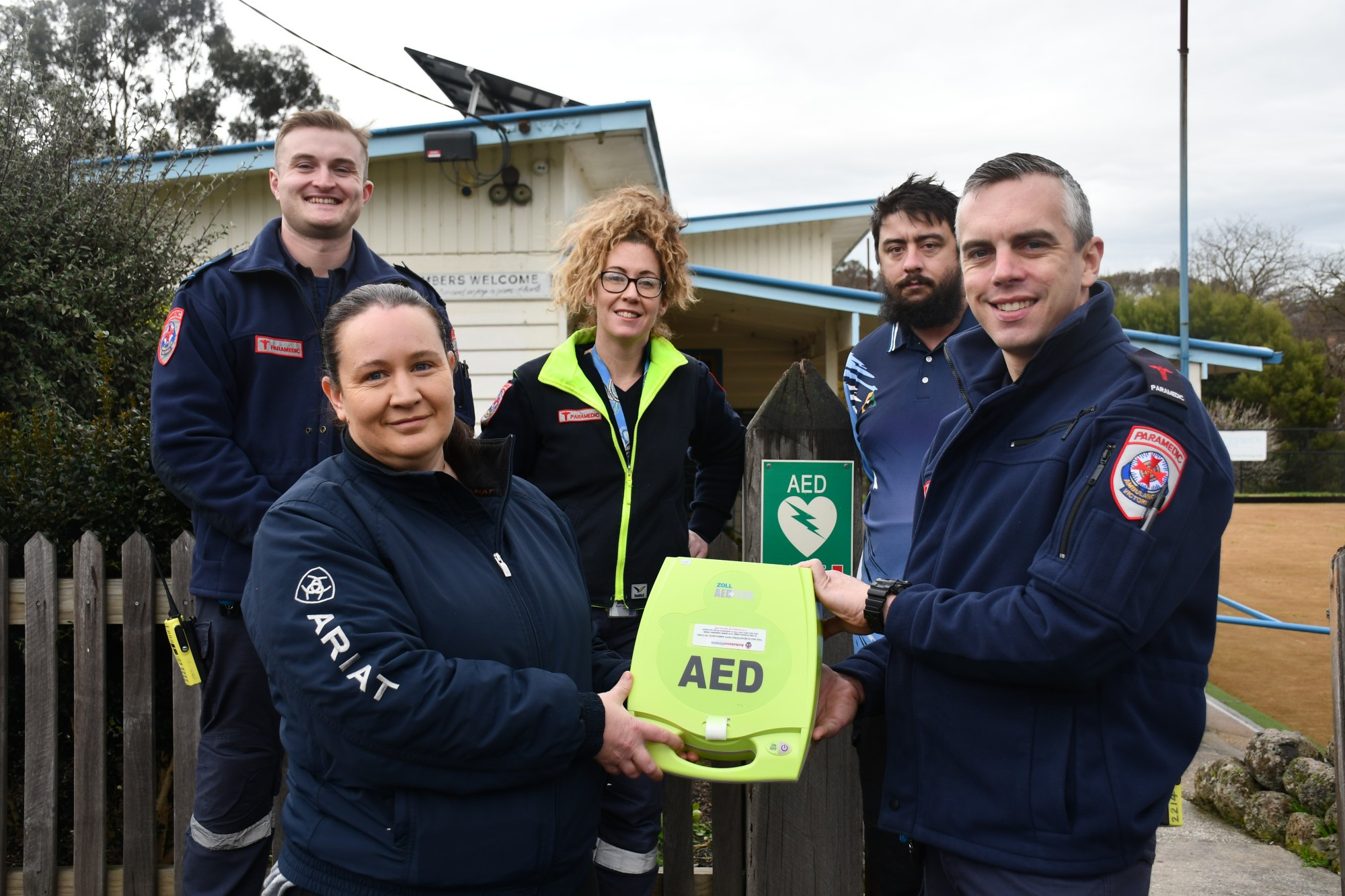General News
22 August, 2022
Clunes community better equipped to handle cardiac arrest
Clunes is now one of 20 official Heart Safe Communities in the state following a program that has upskilled residents, built resilience and improved out-of-hospital cardiac arrest survival rates for locals. Over the past two years, Ambulance...

Clunes is now one of 20 official Heart Safe Communities in the state following a program that has upskilled residents, built resilience and improved out-of-hospital cardiac arrest survival rates for locals.
Over the past two years, Ambulance Victoria have been working closely with local advocates to educate groups, clubs and organisations around cardiac arrest, the role of Triple Zero in a cardiac emergency, CPR training, the use of an automated external defibrillator (AED) which shocks the heart to help restore a normal rhythm and smart phone technology like the GoodSAM app.
The program had been rolled out to Clunes due to the lack of an ambulance station in the town and the tyranny of distance the community faces, which Clunes resident and neighbourhood house coordinator Deb Bright said highlighted the need for Clunes to become a Heart Safe Community.
“We’re quite remote, we’re a fair way from Ballarat and we don’t have an ambulance locally in town,” she said.
“We’re in the middle of two major cities and it takes time for an ambulance to get to us, so it’s really important to upskill our community members and have AEDs available.
“Every minute counts in a cardiac arrest so the earlier you can apply a defibrillator and start CPR, the better the chances of survival.”
With the Clunes community graduating from the Heart Safe Communities program at the end of June, there are now 16 AEDs in the town, including five which are publicly accessible around the clock.
Ms Bright, who is also a GoodSAM responder — a person who is alerted to nearby cardiac arrests and starts CPR before an ambulance arrives — said part of upskilling the community was making AEDs more widely available.
“I’ve been assisting the community in training with the defibrillators, such as the local football and netball club,” she said.
“We ran a session with the members to upskill them on how to use the devices so that in the event of an emergency, they can use them appropriately.
“AEDs are more accessible now than they were previously and many more people are confident or comfortable in using them.”
Cardiac arrest happens when a person’s heart suddenly stops beating and stops pumping blood effectively around the body and can happen to anyone, anytime, anywhere.
Ambulance Victoria Operations Community Engagement Liaison Coordinator Mel Buckingham said regardless of training, AEDs are accessible to all bystanders and time is critical in the event of a cardiac arrest.
“Anyone can use an AED, regardless of whether they have received training to do so,” she said.
“If someone is in cardiac arrest and an AED is available, simply open it and follow the verbal instructions. They are safe and easy to use and will not deliver a shock unless it is necessary.
“I think it’s really important the community are aware of what they have so that in the event of an emergency, particularly a cardiac arrest, they’re able to respond to that before an ambulance crew does arrive.
“Having those AEDs in the community supports anybody, whether it’s a small child or an elderly person — those AEDs play a very important role in the survival of people in cardiac arrest.”
To find your nearest AED visit registermyaed.ambulance.vic.gov.au and type in your postcode.
AED — The impact on the ground
Cardiac arrest is something the Clunes Football Netball Club knows first-hand, committee member Kath Milne said, after a close call a few years ago.
“A number of years ago we did have an incident there where one of the umpires did suffer a cardiac arrest,” she said.
“We were lucky enough that one of our supporters was a doctor and there were people around who were trained in giving CPR.
“That incident really rang some bells for us and we worked to get a grant so we could get a defibrillator at the ground.
“Now that we’re living in a Heart Safe Community and all eyes are on defibrillators at the moment, Deb had a great idea of getting all the different groups and clubs together in the community to talk about how we could do things differently and better.
“In my view, if I look at the snapshot of what goes on at the footy and netball club I reckon there’s a bit of peace of mind there now because of this.
“The point about distance and being far away from an ambulance station is important and because of that, we all need to get on board because the more resourceful we can be here in Clunes, the better off we’ll all be.”
It’s a similar story for the Clunes Bowling Club, where one of the town’s AEDs are accessible around the clock, and secretary Josh Polson said it was important the club had one giving the ageing nature of the sport.
“It’s well-known bowls is primarily a sport for older people so if someone does go down on the green, we now have the equipment here to potentially save them if need be,” he said.
“We hope we never have to use the AED, but with between 50 and 60 playing members and it’s comforting to know we have that equipment there.”